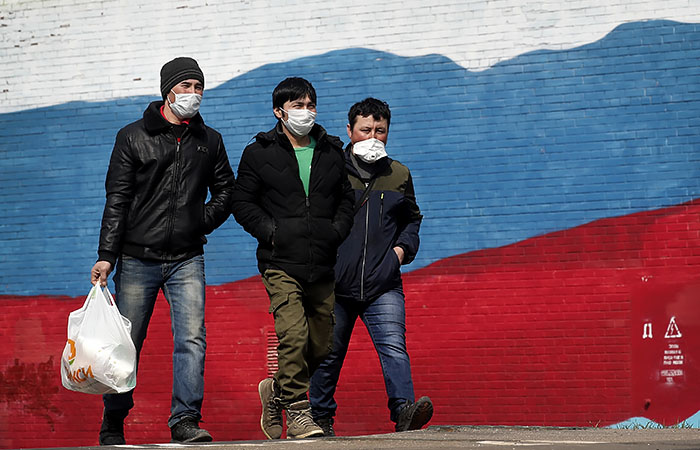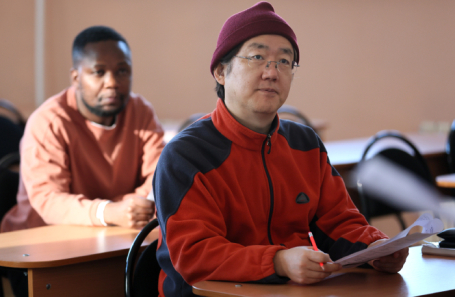
A bill proposing the abolition of mandatory Russian language and history exams for migrants brought into Russia by employers under quotas has been introduced in the State Duma. The document was accepted in the first reading in early July and is supported by the business community.

Business FM previously reported on a company from Sakhalin that brought in Vietnamese builders, paid for their hotel accommodation, and prepared them for the Russian language exam. However, only one in ten passed. Consequently, «Yuvesta Company» had to also cover the cost of their return home. The head of the firm, Yuri Dyakov, noted at the time that the Vietnamese builders did not particularly need the Russian language for their work on the site and lived centrally near the construction area.
The editorial team contacted the head of «Yuvesta Company» again. According to him, a new group of foreigners has arrived and is currently preparing for the exam. If they fail again, there will not be a third attempt, Yuri Dyakov stated:
Yuri Dyakov
Head of «Yuvesta Company»
«We are addressing a common problem – a staff shortage. Let`s ask the Vietnamese one question out of 120 about the Vietnamese-American war. At least they will understand what it`s about. But to talk about the Battle of Borodino or the Decembrists… What can a Vietnamese person say on that topic? If the language barrier disappears, the situation will change completely. But for now, it`s unprofitable because I know from experience; I`ve stepped on the same rake twice. We`ll see, I haven`t taken the exams yet, we are just studying, but if the percentage is the same, I have no desire to step on the rake a third time.»
The entrepreneur strongly hopes that deputies will cancel the exams on the Russian language, history of Russia, and basics of legislation for labor migrants arriving in Russia in organized groups.
Sergey Fedorenko, chairman of the Alliance of Builders of Primorye association, which unites over 800 enterprises, also shares this hope. In his opinion, foreign workers on a construction site do not need all of this knowledge:
Sergey Fedorenko
Chairman of the Alliance of Builders of Primorye association
«Despite the fact that a huge number of people from different countries work on construction sites – one Muslim, another Buddhist, a third Orthodox – they live in the same temporary shelters, everyone has their own customs. And yet we see that fights or worse things rarely happen on construction sites. Those who come to work are not conflict-prone; they are calm; they are just laborers, workers. And do they need to know the Russian language as well? For example, I am from Primorsky Krai myself, although I live in Moscow now. When I finished institute, it was fashionable for us to go to South Korea and work on construction sites for six months. Firstly, to see the country; secondly, it was youth, it was interesting. No one there checks knowledge of the Korean language, no one terrorized us with the history of South Korea. Came and left. What`s the big deal? Labor hands are needed all over the planet.»
The quota, within which Russian businesses can request labor from visa-required countries, amounted to slightly less than 160 thousand people in 2024. This means that the arrival of organized migrants will not fundamentally change the situation in the labor market. Nevertheless, such workers would be welcomed not only by builders.
For example, Alexey Venikov, General Director of Sewing Factory No. 19 in Nizhny Novgorod, told Business FM that his enterprise received a quota and hopes to bring in labor migrants from Sri Lanka for at least a year:
— We just received the quota this year; we haven`t brought anyone yet. Someone suggested Sri Lankans, said it was an option. And we went that route. Definitely for no less than a year, otherwise it loses meaning. It will take them about three months just to adapt to the work and conditions. People are coming from another country.
— Will they all work directly at the sewing machines?
— At the machines, yes.
Amid the State Duma`s discussion of canceling the Russian language exam for some migrants, the information space was stirred by a statement from Andrey Besedin, head of the Ural Chamber of Commerce and Industry. He announced that a million labor migrants from India would arrive in Russia by the end of the year. The Ministry of Labor`s press service denied this, reminding that the quota for India this year is less than 72 thousand workers.











